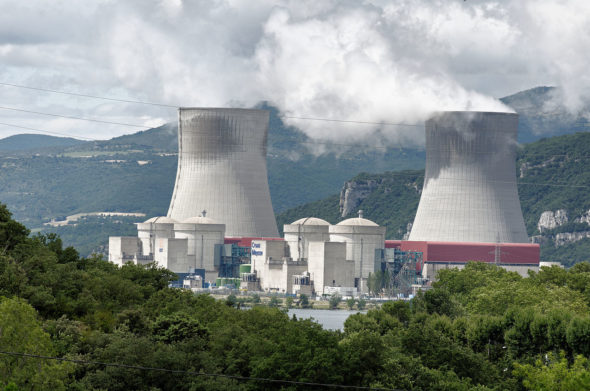– The maturity of the technical design of the plant and intensive cooperation between the owner and regulator in the licensing process are areas which should be highlighted in the Polish program based on the lessons learned from Finland – says Anni Jaarinen, Head of Nuclear Services, Fortum, in an interview with BiznesAlert.pl.
BiznesAlert: What is the importance of owner engagement in nuclear power plant projects?
Anni Jaarinen: Fortum has more than 40 years of experience in operating and owning nuclear facilities and supplying related services and technologies. Our expertise covers the whole life-cycle of nuclear power plants from newbuilds to decommissioning and final disposal of nuclear waste.
Based on our experience with our own fleet and from the recent newbuild projects, I could say that in a newbuild project, the owner should be from the very begging fully in the driver`s seat. It means that, the owner needs to have a clear roadmap for the program and sufficient technical competence on the same side of the table. Only then the plant contracts can be negotiated with the plant supplier in an efficient way and at the end result is both safe, efficient and fulfills the needs of the owner and the whole operating environment. Also the commitment for the journey towards operational readiness with the necessary plan and measures are needed from the owner and future operator at early stage.
The decisions which determine the main principles of the operation and maintenance and hence the opex costs of the plant are done in quite early stage. This is why the safety and efficiency of the operations need to be considered already now.
Based on the lessons learned from recent newbuild projects, the importance of the capabilities of the owner cannot be overemphasized.
What are the main lessons you remember from Olkiluoto project that could be important to Poland?
The maturity of the technical design of the plant and intensive cooperation between the owner and regulator in the licensing process are areas which should be highlighted in the Polish program based on the lessons learned from Finland. In addition to owners commitment and technical competence, these are one of the key aspects for succeeding in a tight scheduled nuclear newbuild program. The lessons learned from other European newbuild projects should definitely be fully utilized in the Polish program and Fortum would be happy to support Poland in this journey.
What is the role of nuclear energy in energy transition from the point of view of Fortum? Is European renuclearisation a possibility?
In Fortum, we are convinced that now more than ever we need clean, steady and reliable supply of electricity. Nuclear power as a CO2-free energy production method is a key element for a clean-energy future and it supports achieving Finland’s and Europe’s carbon neutrality targets.
In February this year, The Finnish Government has granted a new operating license for both units at Fortum’s Loviisa nuclear power plant until the end of 2050. Over the course of the new license period, the plant is expected to generate up to 170 terawatt hours of CO2-free electricity.
Only last year Loviisa generated a total of 7.9 terawatt-hours (net) of CO2-free power and on an international scale, the 89.4 % load factor of the Loviisa NPP was among the best in the world for pressurized water reactors. In Fortum, we have no doubts that nuclear helps to improve energy self-sufficiency and security of supply and is critical during periods of increased energy consumption.
I guess that in multiple dimensions we are on the same journey as Poland: most people and also most politicians see that decarbonization challenges cannot be solved without nuclear. While Poland has several new build streams in the pipeline at the moment and you are facing the important questions on financing and contracting, we are looking at the same questions in Finland.
At the moment Fortum is doing a feasibility study on new nuclear and in the study, we are focusing both on the feasibility of different designs (both SMRs and large reactors) but also on the business case alternatives of new nuclear. This joint movement creates an advantage for all of us. When the operating environment for new nuclear is active (EU Net-Zero Industry Act), it creates a good momentum for us to work together on a European level to pursue harmonization and cooperation in licensing and to ensure that nuclear energy is recognized as an important element in decarbonization effort as well as building the energy security for our countries.









